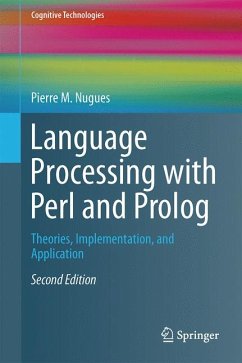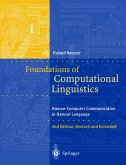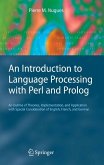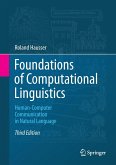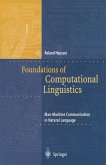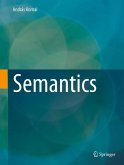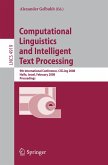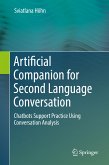This book teaches the principles of natural language processing, first covering practical linguistics issues such as encoding and annotation schemes, defining words, tokens and parts of speech, and morphology, as well as key concepts in machine learning, such as entropy, regression, and classification, which are used throughout the book. It then details the language-processing functions involved, including part-of-speech tagging using rules and stochastic techniques, using Prolog to write phase-structure grammars, syntactic formalisms and parsing techniques, semantics, predicate logic, and lexical semantics, and analysis of discourse and applications in dialogue systems. A key feature of the book is the author's hands-on approach throughout, with sample code in Prolog and Perl, extensive exercises, and a detailed introduction to Prolog. The reader is supported with a companion website that contains teaching slides, programs, and additional material.
The second edition is a complete revision of the techniques exposed in the book to reflect advances in the field, the author redesigned or updated all the chapters, added two new ones, and considerably expanded the sections on machine-learning techniques.
Dieser Download kann aus rechtlichen Gründen nur mit Rechnungsadresse in A, B, BG, CY, CZ, D, DK, EW, E, FIN, F, GR, HR, H, IRL, I, LT, L, LR, M, NL, PL, P, R, S, SLO, SK ausgeliefert werden.

